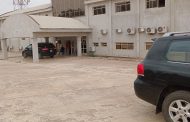Prof Attahiru Jega came to the conversation on restructuring at the January 22, 2021 Media Trust Dialogue clearly set on conceptualising restructuring as no more than a rigorous or far reaching exercise in devolution. On this, even the meanest examiner would give him an ‘A’ rating although some more critical readers would say that Jega was no more than a hesitant advocate of even the devolution he was canvassing. And they would hinge the inference on sentences in the presentation that dismisses devolution as anything in itself. “But there should be no doubt, also, that although restructuring is necessary, it is not a sufficient condition for stability, progress and socioeconomic development in Nigeria. It would have to be combined with good democratic governance predicated on justice, equity and equality of opportunity for all citizens, for it to yield dividends in meeting the needs and aspirations of Nigerians”. There goes Jega live, serving an invitation to those who could then ask: why didn’t Jega just insist on good, democratic governance and forget about what appears a two-step move towards the goal of national democratic fulfillment?
But those who recognise such tension in his intervention at the Dialogue would also have to recognise the consensus between Jega and Jonathan. Both are standing on the position that restructuring itself is not adequate but must be situated in a wider text. Although Jega and Jonathan served in the same administration – Jonathan as president and Jega as the electoral umpire chief dancer – it is not clear if they plumage in terms of direction of thinking and camp reasoning. While the former president is basically what an elder statesman calls him – a live and let live minded person, Jega is today a card carrying member of the PRP tradition of politics. His additional value frame of reference might be the criss-crossing conversations among the elite that he must have been participating on the way forward out of another dingy impasse.
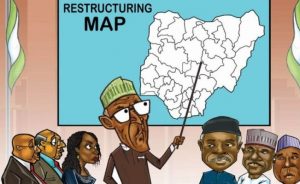
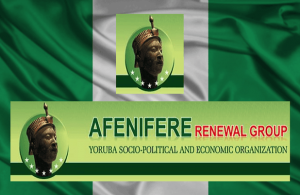 There is a sense that Jega, unlike Jonathan, was trying to avoid coming within the firing range of those canvassing a radical version of restructuring based on methodological ethnicity and ethnic aparthood or separate development. Although the canvassers for this variant of restructuring have yet to put on the table a conceptual framework on restructuring that locates its ‘core’, they have left no one in fragmentary interventions that separate development is what constitutes restructuring. The farthest Jega went in disagreeing with this set of agitators is where he dismissed the case for a return to the old regions and categorically enough by saying that “dismantling the current states structure, and reconfiguring the states into pre-1966 regions, or into 6 geo-political regions, or even into 12 States of 1976/7, is at worst an unrealistic, romantic, pipe-dream; and at best easier said than done. The social and political costs of such an undertaking would by far out-weigh the benefits”.
There is a sense that Jega, unlike Jonathan, was trying to avoid coming within the firing range of those canvassing a radical version of restructuring based on methodological ethnicity and ethnic aparthood or separate development. Although the canvassers for this variant of restructuring have yet to put on the table a conceptual framework on restructuring that locates its ‘core’, they have left no one in fragmentary interventions that separate development is what constitutes restructuring. The farthest Jega went in disagreeing with this set of agitators is where he dismissed the case for a return to the old regions and categorically enough by saying that “dismantling the current states structure, and reconfiguring the states into pre-1966 regions, or into 6 geo-political regions, or even into 12 States of 1976/7, is at worst an unrealistic, romantic, pipe-dream; and at best easier said than done. The social and political costs of such an undertaking would by far out-weigh the benefits”.
So, devolution in the way Jega articulates it seems to be a double move. One, make a practicable concession to the case for decentralisation and even go as far as grounding it intellectually but, two, deny advocates of radical restructuring any legitimacy without firing much shots. It would seem to be a wise choice. A Jega who as INEC helmsman superintended a modernist move as liberating the electoral system from antiquity by introducing the Card Reader certainly stands for something in a country buried in antediluvian reveling. Such a person should shield himself from unnecessary or unproductive wrangling.
But, assuming he frees himself from pot shots from canvassers of radical restructuring, would he also succeed in convincing some of his former students that he has not abandoned ship in relation to developmental state approach to solving Nigeria’s entrapment in antiquity? True as it might be that Jega has produced no document committing him to that stream of consciousness, his activism is sufficient evidence. At the practical level, can he provide a guarantee that even his devolution will not land Nigeria somewhere worse?
Are the local elite thinking of anything better than looting, going to wonder foolishly at fascinating buildings in Dubai or Malaysia and return without any shame into the wretchedity they have left Nigeria for decades? A Commissioner for Agriculture in Benue State once asked if there is anything else anyone can do with oranges than seeping it, thereby announcing that he has never heard that it is from oranges and similar fruits that we have factory packaged fruit drinks. Prof Bayonile Tolani Ademodi, a Commissioner in the Ondo State cabinet died not quite three months. He was an American trained expert in refining. His only ambition and reason for being in government was the opportunity to make an oil bearing state such as Ondo establish and run its own refinery. It never happened. Many states in Nigeria have neither the civil service to run a modern government nor the political leadership with the political education to change this.
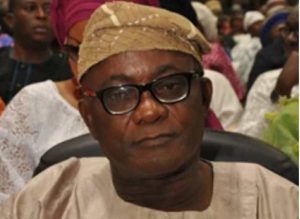
Prof Ademodin
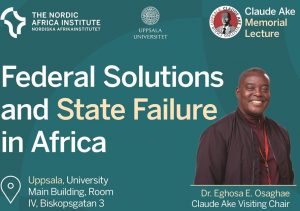
Can this system hear its falconers?
So, Chief Audu Ogbeh, for instance, can only be partially right when he says in a video that is still trending on the social media that the tragedy of Nigeria started with devaluation in 1986. That is only partially true. The tragedy of Nigeria is the nature and quality of its elite. It is an anti-developmental elite. This is the point former Emir of Kano – Sanusi Lamido Sanusi – kept harping upon but where is he today? It is a system that doesn’t want to hear anything like that. That is why when other national elite are setting up schools for critical thinking, the Nigerian elite is comfortable with universities producing graduates that have never heard anything about the Cold War, have never heard anything called the Industrial Revolution, have no idea that there is anybody called Achebe who wrote some steaming stuff. The system does not know about this state of affairs. How can it be shocked if it has no way of knowing that things are this bad? So, every year, they admit new students, graduate some others and life goes on!
This is why Peter Obi is the one getting it right in locating the problem with leadership recruitment. Molue drivers are leading Nigeria to a Formula 1 competition. Unless you either change those drivers or convert Formula 1 to a Molue competition, you are living in denial, by moving from one frenzy to another. Some twenty or so years ago, the frenzy was power shift. Today, it is restructuring or the idea that competitive federalism is only possible if we return to the old regions. Tomorrow it will be something else. Seen from that trend, Jega’s contention that “the starting point of desirable and serious, even realistic, restructuring, is No.5, namely, equitable redistribution of power and resources from the federal government to the sub-national governments/units (i.e. from federal government to State governments, and from states to LGAs)” could implicate him in something dangerous.
There is this story in Daily Trust newsroom in late 1998 about something that happened under the Obasanjo regime in 1977 or so. The cabinet that emerged in the aftermath of the demise of Murtala had no Federal Commissioner from some two states. It is difficult to remember all the two states now but Bauchi was one. When the error was pointed out, it was a surprise to everyone else in the cabinet. As an answer, General Obasanjo who was the Head of State reportedly said, in that case, he became the Federal Commissioner representing the two states. It was Obasanjo as the Federal Commissioner that Bauchi, for instance, got the Steyr plant and a number of other things. It is an old story now and the details might have become distorted but no one would miss the logic of the story as the way forward for Nigeria. It is an enduring example, without giving any static impression about anybody.
Unfortunately, Nigeria is not where such idealism sells anymore because, with Buhari in particular, old grudges have acquired new strength, enough to ignite imponderable consequences at a time like this. The assumption is that, bad as things are, there must still be men and women of goodwill working on Nigeria behind the scene. If only they could be more aggressive in doing so because it is no longer morning yet on creation day. Rather, it is getting to midnight!






